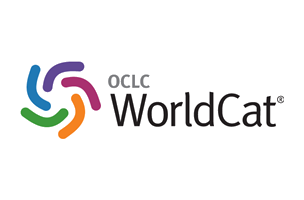PUBLICATION ETHICS AND EDITORIAL POLICIES
Learning Community, An International peer review journal on Educational and Social Development are trying to maintain and also expect the ethical standards publication policies from editors, authors and reviewers of Learning Community, An International peer review journal on Educational and Social Development as well as our all other journals during and after submitting papers and throughout the peer review process.
Learning Community, An International peer review journal on Educational and Social Development follow a Double blind review process but if not satisfied and if required we take another suggestion from a blind reviewer of the same specialty in which the author's identity is kept hidden and vice versa throughout the review process of that particular manuscript.
Blind peer review for a journal in all forms plays a very important, central and critical role in ensuring the integrity of scholarly record. The COPE Ethical Guidelines for Peer Reviewers set out the basic principles and standards to which all peer reviewers should adhere during the peer review process.
GUIDELINES FOR GOOD PUBLICATION ETHICS
A manuscript for good literature there are some guidelines mention by the COPE ethical committee. Manuscript should be well planned, well justified, properly designed and should be ethically approved.
PATIENT CONSENT FORM
The maintenance of patient's pic or other materials privacy is very essential. It is request to all the authors to collect the copy of consent form the patient or other subjects of research that should clearly grant for publication of pictures, photographs or other material of that patients.
A statement for the same should be properly mentioned in the method section of manuscript. If required the editor of the journal can request to submit the consent form of that patient..
ETHICAL COMMITTEE APPROVAL
All original research or dissertations dealing with human and animal for that study the data must be include a statement on ethical approval in the method section of manuscript. The literature for ethical approval must contain the following information- The name and complete address of ethical committee responsible for grant of that research work, the protocol number and the date of approval by the ethical committee.
The researches conducting on human it must be state clearly that the author must have the written informed consent from the subject used in that research. It should follow the latest version of declaration of Helsinki [Quick Links of Learning Community, An International peer review journal on Educational and Social Development]. If ethical committee approval was not mandatory for that study the author must state in literature that why it was not necessary. Please note that the editor can ask the certificate, evidence or copy of ethical committee approval.
https://publicationethics.org/case/ethics-committee-approval
CONFLICTS OF INTEREST
Prior to submission of manuscript the committee policies requires that each author should explain any financial interest or connection either direct or indirect or any conditions which might raise the question of bias in study, research or manuscript. It should properly explain about the financial interest or sources of funding for individual author(s), or other sources of funding, or by organizations or any personal relationships or direct academic competition.
If manuscript is accepted for publication, conflict of interest statement information will be communicated in a published statement.
REDUNDANT OR DUPLICATE PUBLICATION
Redundant or Duplicity in in a manuscript that overlaps or copied from already published, in press or in any electronic media submission without clear, visible reference to the previous publication. Guidelines for this is mention on
Submitted manuscripts should not have been published or currently submitted elsewhere. Duplicate publication is a violation of the APA code of ethics (APA Publication Manual, 2010) and will be grounds for prompt rejection of the submitted manuscript. If the editor was not aware of the violation and the article has been published, a notice of duplicate submission and the ethical violation will be published.
RETRACTION GUIDELINES
Retraction is a mechanism for correcting the literature and alerting readers to publications that contain such seriously flawed or erroneous data that their findings and conclusions cannot be relied upon. Unreliable data may result from honest error or from research misconduct.
http://publicationethics.org/files/retraction%20guidelines_0.pdf







